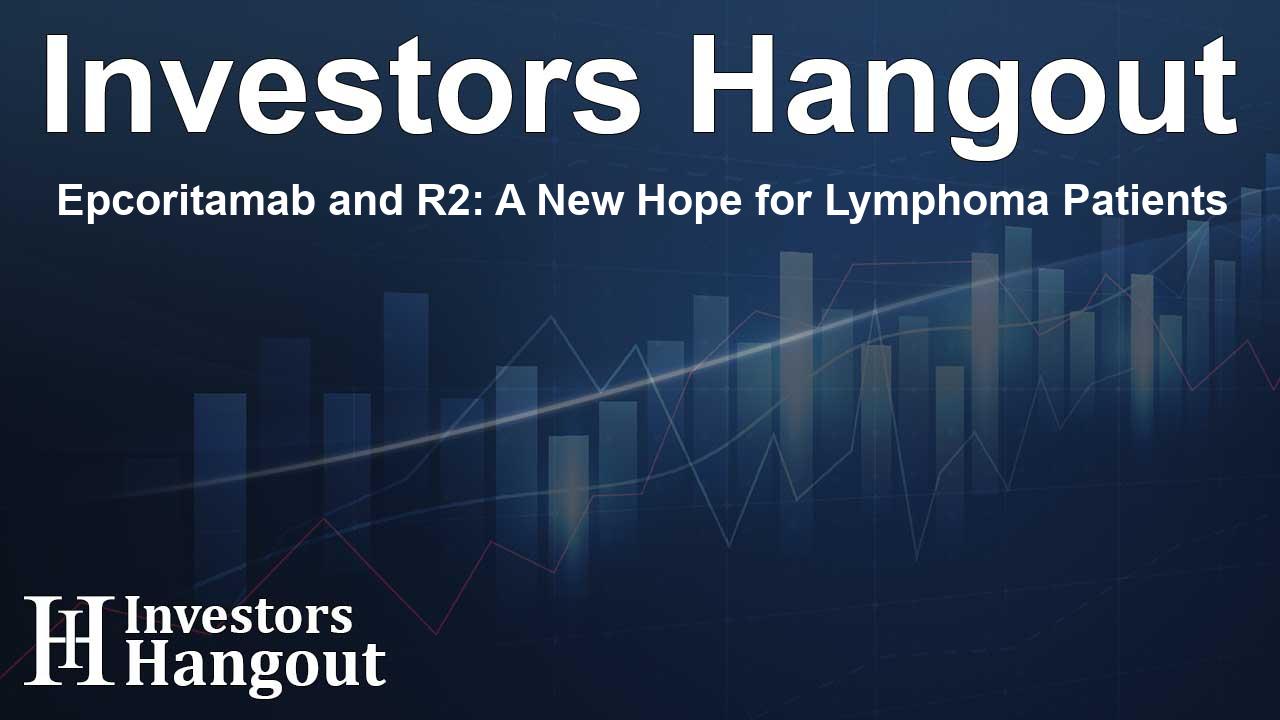Epcoritamab and R2: A New Hope for Lymphoma Patients

Epcoritamab and R2: A New Hope for Lymphoma Patients
AbbVie has recently shared promising findings regarding their investigational drug, Epcoritamab. This innovative combination therapy involving Epcoritamab, a CD3xCD20 bispecific T-cell-engaging antibody, combined with lenalidomide and rituximab (known as R2), offers new options for patients facing relapsed or refractory follicular lymphoma (FL). This work, showcased during a notable American Society of Hematology (ASH) conference, reflects the company's dedication to advancing treatment modalities in oncological care.
About the Study
The EPCORE NHL-2 trial involved a diverse group of 111 patients who have battled FL. Over a follow-up period of more than two years, the therapy showed an impressive overall response rate (ORR) of 96% and a complete response (CR) rate of 87%. Notably, 89% of those who reached a complete response at the 18-month mark remained disease-free. These encouraging results underscore the potential of Epcoritamab as a core therapeutic option in hematological oncology.
Interpreting the Results
Dr. Mariana Cota Stirner, a leading voice in AbbVie’s hematology efforts, emphasized the transformative nature of these findings. The combination of Epcoritamab and R2 not only shows high efficacy, but also potential durability in treatment outcomes. As the clinical landscape evolves, such therapies may redefine standards for relapsed or refractory FL treatment. The trial's design allows for adaptations and continuous improvement in approaching this challenging condition.
The Challenge of Follicular Lymphoma
FL is uniquely problematic, with its indolent nature making it a lingering threat in the realm of non-Hodgkin's lymphoma. This subtype contributes to a significant proportion of NHL diagnoses and remains incurable with current therapies. Approximately 15,000 new cases are noted annually, reaffirming the need for innovative approaches like Epcoritamab. Repeated relapses can complicate treatment, necessitating urgent advancements in care.
Insights from Experts
Dr. Lorenzo Falchi, a prominent lymphoma specialist, echoed the necessity of expanded therapeutic options for FL patients. The durable responses noted in the EPCORE NHL-2 trial signify not just statistical success but also hope for many who have faced diminishing returns from existing therapies. This lines up with the overarching goal in cancer treatment: finding solutions that extend life while improving its quality.
Quality of Life Considerations
Patients dealing with FL often face a complex array of challenges that extend beyond the physical manifestations of the disease. The emotional toll of relapses, combined with the anxiety surrounding treatment methodologies, can lead to feelings of helplessness. By providing an effective and manageable treatment like Epcoritamab, we can help in restoring not only health but hope and overall well-being.
Looking Ahead: Future Trials
AbbVie is not resting on its laurels. The ongoing pivotal Phase 3 trial aims to further establish Epcoritamab as a core treatment for B-cell malignancies. The results from the initial studies generate excitement as AbbVie commits to refining these therapies and, ultimately, enhancing patient lives. Collaboration with Genmab places both companies at the forefront of this innovation, as together they continue to evaluate Epcoritamab across a variety of hematological malignancies.
About Epcoritamab
Epcoritamab is a next-generation bispecific antibody designed to target both CD3 and CD20, enhancing the body's immune response against B-cell malignancies. Its unique DuoBody technology enables precise engagement of T cells, making it an exciting development in cancer therapeutics. The FDA's breakthrough therapy designation for Epcoritamab paired with R2 reflects recognition of this hopeful advancement.
Regulatory Status and Safety Profile
While Epcoritamab showcases remarkable potential, it is important to note that it has not yet been approved for use in the U.S. or European markets. Safety assessments highlight various adverse effects, including cytokine release syndrome and neurologic complications. Ongoing trials are vital to elucidate the complete safety profile and efficacy of this promising therapy.
Frequently Asked Questions
What is Epcoritamab used for?
Epcoritamab is being studied for its effectiveness in treating relapsed or refractory follicular lymphoma when combined with other therapies.
How effective is Epcoritamab in clinical trials?
The EPCORE NHL-2 trial reported a 96% overall response rate and an 87% complete response rate among participants.
Is Epcoritamab currently approved for use?
As of now, Epcoritamab is not approved in the U.S. or EU but has received a breakthrough therapy designation from the FDA.
What complications are associated with Epcoritamab?
Potential complications include cytokine release syndrome and neurological effects, which require careful monitoring during treatment.
Who is developing Epcoritamab?
Epcoritamab is co-developed by Genmab and AbbVie, focusing on advancements in oncology treatments.
About The Author
Contact Caleb Price privately here. Or send an email with ATTN: Caleb Price as the subject to contact@investorshangout.com.
About Investors Hangout
Investors Hangout is a leading online stock forum for financial discussion and learning, offering a wide range of free tools and resources. It draws in traders of all levels, who exchange market knowledge, investigate trading tactics, and keep an eye on industry developments in real time. Featuring financial articles, stock message boards, quotes, charts, company profiles, and live news updates. Through cooperative learning and a wealth of informational resources, it helps users from novices creating their first portfolios to experts honing their techniques. Join Investors Hangout today: https://investorshangout.com/
The content of this article is based on factual, publicly available information and does not represent legal, financial, or investment advice. Investors Hangout does not offer financial advice, and the author is not a licensed financial advisor. Consult a qualified advisor before making any financial or investment decisions based on this article. This article should not be considered advice to purchase, sell, or hold any securities or other investments. If any of the material provided here is inaccurate, please contact us for corrections.
